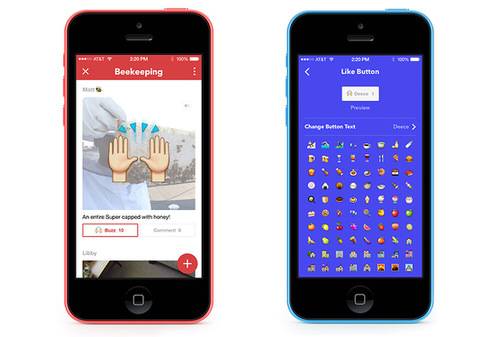
Mark Zuckerberg once said, “Having two identities for yourself is an example of a lack of integrity.”
Turns out that’s not the case after all—two, or three, or any number of identities are allowed in Facebook’s Rooms app. Facebook is moving away from the rule that your one and only personal identity must be shared online with friends.
As people become disenchanted with connecting to parents and work friends with one Facebook profile, applications like Whisper, Secret and, in part, Snapchat, have grown in popularity by allowing people to be their true selves online, without anyone really knowing about them.
On Thursday, Facebook introduced Rooms, an app that lets people share photos or messages and talk with people in various chatrooms, all while using different pseudonyms.
Rooms is the company’s latest app from Facebook Creative Labs, the team behind other Facebook apps Slingshot and Paper, which have yet to amass much popularity.

Individuals create “rooms,” around a particular topic, and people can post photos, videos and messages relating to such topic—like photography, sushi or San Francisco. People create a username before joining a room, and it can be different each time. In order to join a room, someone must be invited with a QR code image that can be shared publicly on sites like Twitter or Facebook, or only among friends. An invitee must screenshot the QR code and open the image in the Rooms app to be admitted to the room.
Rooms is a bit like AOL chat, IRC or Reddit, but for mobile devices. (In fact, an IRC chat client called Rooms already exists in the App Store.) Being a Creative Labs project, Facebook’s Rooms is colorful and well-designed, with options to write your name with emoji, or change the “like” button to a different word or emoji icon.
Unlike other chat and forum services like Reddit or 4chan, Rooms users have to abide by Facebook’s Community Standards, which ban nudity, bullying and other kinds of inappropriate photos or speech. Like Secret, people can flag inappropriate content on the app for removal. Of course, as we’ve seen on Secret, no “anonymous,” apps are abuse-free.
Room moderators can also control the content by reviewing or deleting certain posts and making the room only available to people over 18. Rooms is available today for iOS in the US, UK and some other English speaking countries, though many people are having trouble downloading it. Josh Miller, the man behind Rooms, says the errors are out of Facebook’s control and the company is waiting for Apple to propagate.
Departure From Real Names
Rooms is a total deviation from Facebook’s longstanding belief that people need to use their real names on the service. Its policies regarding names recently came under fire as the company suspended accounts of drag queens who were using stage names, instead of their “real names,” on accounts.
See also: Can Anyone Remember Facebook’s Last Original Idea?
Facebook’s new app signals a shift—one that’s inspired by other popular applications, as its other Creative Labs projects are. Though Rooms isn’t a direct ripoff of other apps like Paper and Slingshot.
Pseudonymous apps aren’t entirely anonymous of course, as we’ve seen with breaches in privacy or security on Secret and Whisper. But it appears that Facebook’s Rooms is less about gossip, and more about interests—though those lines can be blurred, and people commenting from behind usernames can be more emboldened to abuse others.
Perhaps Facebook’s new take on the old chatroom might make it rethink some of its policies on Facebook proper—people clearly want anonymity. And forcing people to use real identities may not be as friendly as the company once thought.
Lead photo by Eryne via Flickr
















